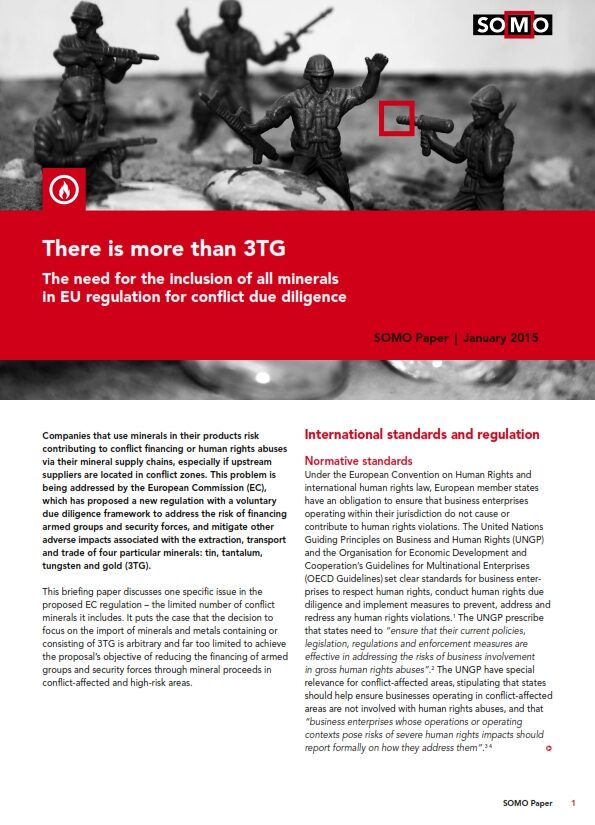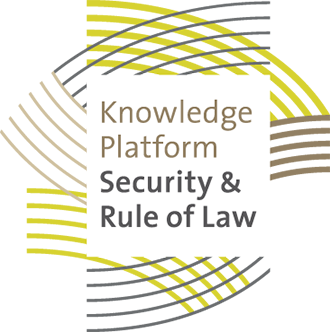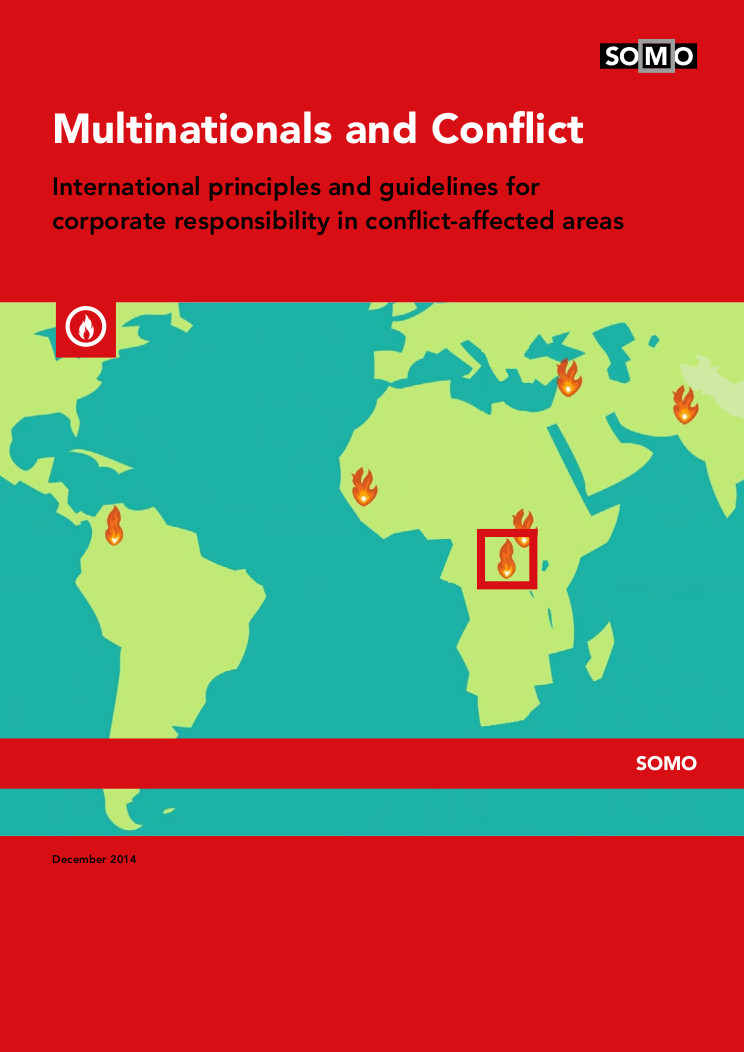
EC’s Conflict minerals proposal must not be limited to four minerals
The European Commission has set out to reduce the financing of armed groups through the sales of conflict minerals. But by focusing narrowly on the procurement of four minerals, their new regulation will have limited effect. New research by SOMO shows that dozens of different kinds of minerals are associated with conflicts worldwide. The researchers call for radical adjustments to the EU proposal.
SOMO research shows that in 2013, conflicts that were associated with minerals occurred in 17 countries throughout Asia, Latin America, and Africa. In the conflict regions, a wide variety of minerals was produced, ranging from iron ore, zinc, sulfur, nickel and molybdenum to silver, jade, diamond, and many others. Copper was the mineral most frequently associated with conflicts.
Due diligence
Many of these minerals are used in the supply chains of European companies. Companies sourcing minerals that were extracted in conflict-affected areas run a high risk of being linked with, or even contributing to, human rights violations in the producing regions.
The Commission’s proposed regulation involves a voluntary due diligence system for European importers of tin, tantalum, tungsten and gold, also called 3TG. The regulation intends to prevent European companies from contributing to the financing of armed groups or security forces through mineral proceeds.
There is more than 3TG
According to SOMO researcher Fleur Scheele, the regulation will prove to be ineffective if it does not include non-3TG minerals sourced from conflict zones. “We know there is a large number of minerals that are associated with conflicts. If we want to break the link between conflict and the use of minerals in European supply chains, we should not focus on four minerals only, but acknowledge the fact that any mineral sourced from a conflict zone can contribute to conflict. Therefore, all minerals sourced from high-risk zones should fall under EU regulation”.
Conflict Due Diligence by European Companies
Not only importers
And there is more. Due to the fact that most minerals do not enter the EU in a raw form, but rather as elements in industrial applications and consumer goods such as vehicles and electronics, most European companies will not fall under this regulation that is aimed only at importers of raw materials. According to Scheele, this is another missed opportunity. “The United Nations Principles on Business and Human Rights point out that human rights due diligence should be conducted by companies of all kinds. There is no reason an EU regulation should only target a very small percentage of corporate users of conflict minerals. This is not in line with the Guiding Principles, and does not treat European companies equally”.
SOMO calls upon the EC to sharpen the proposed regulation by including all minerals in the regulation, expanding the range of companies to all companies that use the minerals in their supply chains, and making the regulation binding instead of proposing a voluntary due diligence system.
Do you need more information?
-

Gisela ten Kate
Coordinator MVO Platform
Related content
-
Conflict Diamonds: Crossing European borders? Published on:
 Myriam Vander StichelePosted in category:Publication
Myriam Vander StichelePosted in category:Publication Myriam Vander Stichele
Myriam Vander Stichele -
Conflict Due Diligence by European Companies Published on:
 Gisela ten KatePosted in category:Publication
Gisela ten KatePosted in category:Publication Gisela ten Kate
Gisela ten Kate
-
 Academics, policymakers and practitioners join forces in meeting about private sector and conflict sensitivityPosted in category:NewsPublished on:
Academics, policymakers and practitioners join forces in meeting about private sector and conflict sensitivityPosted in category:NewsPublished on: -
-
-
Multinationals and Conflict Published on:Mark van DorpPosted in category:PublicationMark van Dorp


